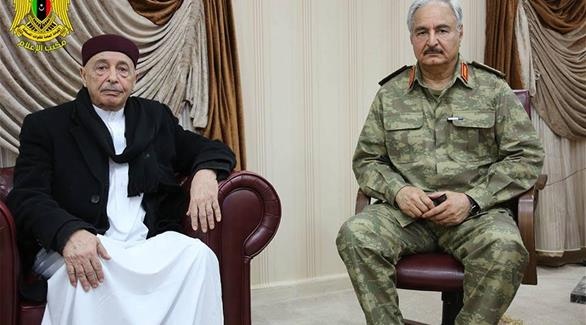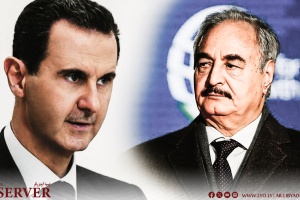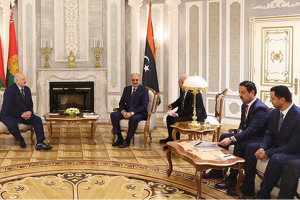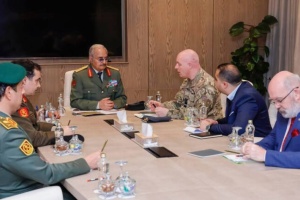Warlord Khalifa Haftar and the speaker of House of Representatives, Aqailah Saleh, have both introduced two contradictory plans to save their defeat in western Libya.
The eastern camp is in a state of confusion with Haftar now wants to rule the country by military means and Saleh is proposing a political solution to the Libyan crisis.
Aqailah Saleh introduced on Thursday night a new “roadmap” to end the country’s division. In a televised address, he proposed to re-restructure the UN-backed Presidential Council to include a president and two deputies representing the country’s three regions.
According to Saleh’s proposal that came after more than a year of a bloody war on Tripoli, the new Presidential Council would select a prime minister and three deputies from the three regions who then form a government and present it to the House of Representatives for confidence.
He also proposed to form a new committee to write the constitution and hold presidential and parliamentary elections after the approval of the constitution.
But minutes after Saleh’s address, warlord Haftar popped up in his own Alhadat TV with a different plan. Speaking anxiously, Haftar demanded his supporters to authorize him and his army to rule the country and become a president of Libya to “eliminate the militias and terrorist groups.”
He begged the Libyan people to revoke the UN-brokered Libyan Political Agreement and declare the Presidential Council as an illegitimate authority to pave the way for him to rule.
With his plan, Haftar would overthrow the east-based House of Representatives and the parallel government of Abdullah Al-Thani and lead a military junta to rule the country.
His plan, if succeeded, would be only effective in the eastern part of the country.
Shortly afterwards, his supporters marched in some eastern cities, crowding in main squares despite the coronavirus curfew. His fans chanted slogans demanding the speaker of House of Representatives, Aqailah Saleh to hand over power to Haftar. They also held “pre-designed” banners calling for Haftar to rule the country.
Both addresses have been seen by critics as a sign of failure to advance on Tripoli and control the country by military methods despite the strong foreign support to Haftar.







